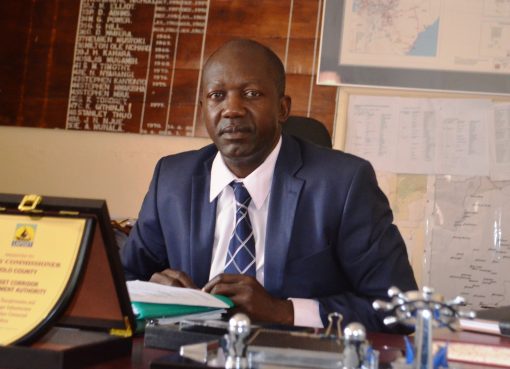
In a span of one month we have lost three key public figures in Kenya, namely Safaricom CEO Bob Collymore, Kibra MP Ken Okoth and Bomet Governor Dr. Joyce Laboso as a result of cancer.
This figure only represents few cases of deaths that have been highlighted in the mainstream media channels, as many more cancer related fatalities across the country go unreported.
Cancer is now the 3rd leading cause of deaths and second among non- communicable diseases accounting for 7 per cent of overall mortality rate.
However there are very few medical facilities offering cancer treatment in Kenya, with the Kenyatta National Hospital (KNH) being the main fully equipped public hospital, serving thousands of cancer patients in the country, despite having only three functional radiotherapy machines.
Worse still, figures from the National Cancer Institute of Kenya (NCI-K) have indicated that new cases of cancer countrywide have increased from 41,000 to 47,887 cases annually, with esophagus cancer listed as the top killer, claiming at least 4,351 lives every year.
The saddest fact is that the killer disease is mainly diagnosed while at advanced stages among 70-80 per cent of patients in Kenya.
“Cancer treatment is not easy in the country. Everyday hundreds of Kenyans suffering from cancer are misdiagnosed or experience late diagnosis,” the departed legislator said recently.
According to hospital sources the average cost of a radiotherapy session is Sh3, 600 and a patient needs to undergo 25 to 30 sessions per month which translates to Sh90, 000 per month, making it extremely difficult for the ordinary mwananchi to get treatment.
This means over 90 per cent of Kenyans cannot afford cancer treatment, even in the public hospitals considering the prohibitive cost of radiotherapy sessions coupled with other resultant costs.
According to Ms. Emily Mukomunene, the author of ‘Focus on Cancer’ and also an activist campaigning against the disease, lack of awareness among Kenyans on cancer is the major contributing factor to late diagnosis.
“One should regularly go for screening to increase chances of controlling the spread of the disease before it gets out of hand,” she advises.
Mukomunene stresses that more needs to be done in the fight against the scourge and appealed to both the government and humanitarian agencies to come together and devise mechanisms of mitigating on the big medical challenge.
“Cancer is a lifestyle disease and can affect anyone, directly or indirectly, so we should not shy away from facing it head on,” she stated during an interview with KNA Monday.
Her sentiments were supported by another cancer activist Ms. Njeri Muthaka who expressed disappointment over the lethargy displayed by the health sector in addressing the crisis.
“We have many stakeholders and volunteers pushing for better healthcare for Kenyans but nothing much is being done,” she lamented.
Meanwhile, the Cancer Prevention and Control Act 2012 and the National Cancer Control Strategy (NCCS) 2017-2022 prioritizes prevention, through screening for early detection, as the best method to deal with the disease.
According to Mukomunene, the government should now move with speed and declare cancer a national disaster. This will enable establishment of health promotion and prevention programs for cancer screening at the various health facilities countrywide.
By Andy Morgan




